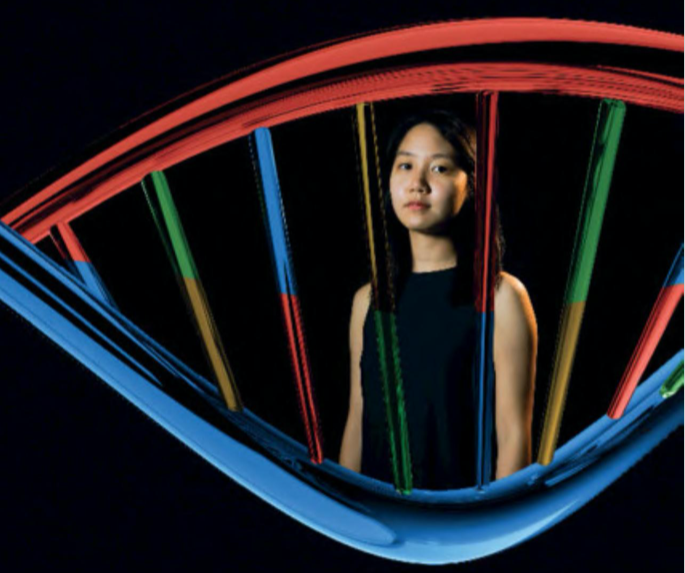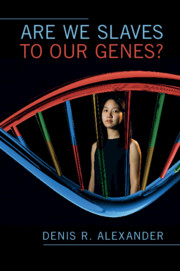
The A380 Airbus is currently the largest airplane in civilian use, holding up to 853 passengers. It is made up of about 4 million individual parts produced by 1,500 companies from 30 countries. It takes months to assemble (the current record time is 80 days). Clearly, the quality of the individual components is of critical importance to its flying capability. Its correct assembly is likewise critical – however good the quality of a component might be, if installed incorrectly then the plane won’t fly properly. But what’s really important is how those 4 million individual parts interact with each other to make the complex system function. It’s the interactions that make the plane fly, and unless the actions of the components are thoroughly integrated, it won’t fly…
Looking now at the Airbus system as an operating aircraft, its overall direction and ‘behaviour’ is governed not by its component parts, important as they are, but by the system operating as a whole. What it can do – for example, fly at a maximum speed of 1,185 km/hour and go for 15,000 km without landing – is defined entirely by the system. But its schedule is determined by a level of discourse, largely economic, that goes way beyond a discussion of the strength of its wings and its braking capabilities. Major environmental factors – the airline company’s decisions – impinge upon where it ends up every day, but where it goes is absolutely constrained by the kind of plane it is. If the runway is too short, then it just can’t go there. At the same time, its development is continuing ever onwards, with regular servicing and the replacement of parts.
Illustrations shouldn’t be pressed too far, but there are some parallels here with our own human identities. Compared with an Airbus, we are vastly more complex, with around 37 trillion cells in our bodies. With us, it’s also our development that is the key – how well we are put together – but also the way in which all those millions of components interact with each other to form an integrated system. It’s the interaction and the integration that make us who we are. And at the higher functional level, where we go and what we do is our choice as agents (we are the airline company executive!). Yes, those choices are heavily constrained by our biological existence – we cannot walk on water, we need oxygen, we need our sleep – but it’s how the complex system operates as a whole that is ultimately the most important question…
If we start our education in genetics by thinking that ‘one gene leads to one characteristic’, this can spill over to how we think about genetics in general… An error in a single gene causes a potentially lethal disease, which arises from not being able to digest fructose properly. This sounds like one gene leading to one particular fault in the system – which is true, although in fact the disease system in this case is quite complicated with many steps…
The unfortunate fact is that the way biology is taught in schools spills over into the public understanding of genetics, and the idea that one gene causes a particular human characteristic, even in quite a deterministic kind of way, is still all over the place in the media…One common media confusion is the idea that there is a ‘gene for’ some complex human characteristic. There are mean genes, gluttony genes, gangster genes, liberal genes that cause you to read The Guardian and even the whimsical suggestion of a ‘geneticism gene’ that predisposes some people to think that behaviour is caused by genes…The general impression given is that it’s the genes that run the show and so there’s not much you can do about it. Although science journals are generally more careful in their language, their news reporters occasionally slip up and give a similar impression…
If people really believed that their decisions were determined by their genetics, their environment, or both, not just saying that but actually acting on their beliefs, then clearly much of the social cohesion that holds societies together would vaporise. The moral responsibility assumed by our legal systems plays a central role in assessing whether or not someone is guilty of a crime. The concept of love, which is central to human relationships, would make little sense if we were just determined to love whomsoever by our genes and our environment. Our choice to be an atheist, or an agnostic, or a theist, or wherever we may end up on the religious or non-religious spectrum, has little meaning unless we chose where to be on that spectrum. Asking the question as to whether we are truly slaves to our genes is of more than theoretical interest…
The top-down effects arising from different world views can result in implications for our human identity that are even more important than those due to the bottom-up effects of our genes…The idea that the whole of humankind, without exception, is made in the image of God, is a Jewish and Christian conviction that has had, and continues to have, a powerful influence on ideas concerning human identity. The idea has contributed historically to the shaping of moral values, political systems, the abolition of slavery, medical care, education and more generally the justification of human rights…
There is a recent theological emphasis on a holistic perspective on human personhood that coheres well with the type of scientific perspective that has been presented in previous chapters…Genomic variation, environmental influences and personal choice are all integrated in human development to generate the whole person, and it is the whole person who is made in the image of God and the whole person who responds to God, with profound consequences for their well-being, including their health, their relationships, and the choices they make on how to invest their time and money. This is why the science of human behavioural genetics can readily be welcomed by those who embrace such insights because there is nothing ‘unspiritual’ about the genome, nor indeed about the synaptic architecture of the brain, nor about sex, nor about any other aspect of our physical being. Likewise, genomic variation should be welcomed, not only because of the obvious evolutionary perspective that without it we would not exist but also… as a guarantor of individual human uniqueness.
 Extracts from Denis Alexander Are We Slaves To Our Genes? (CUP, Sept 2020) used here by permission of the author.
Extracts from Denis Alexander Are We Slaves To Our Genes? (CUP, Sept 2020) used here by permission of the author.
Available for the discounted price of £14 at the Faraday online shop.




